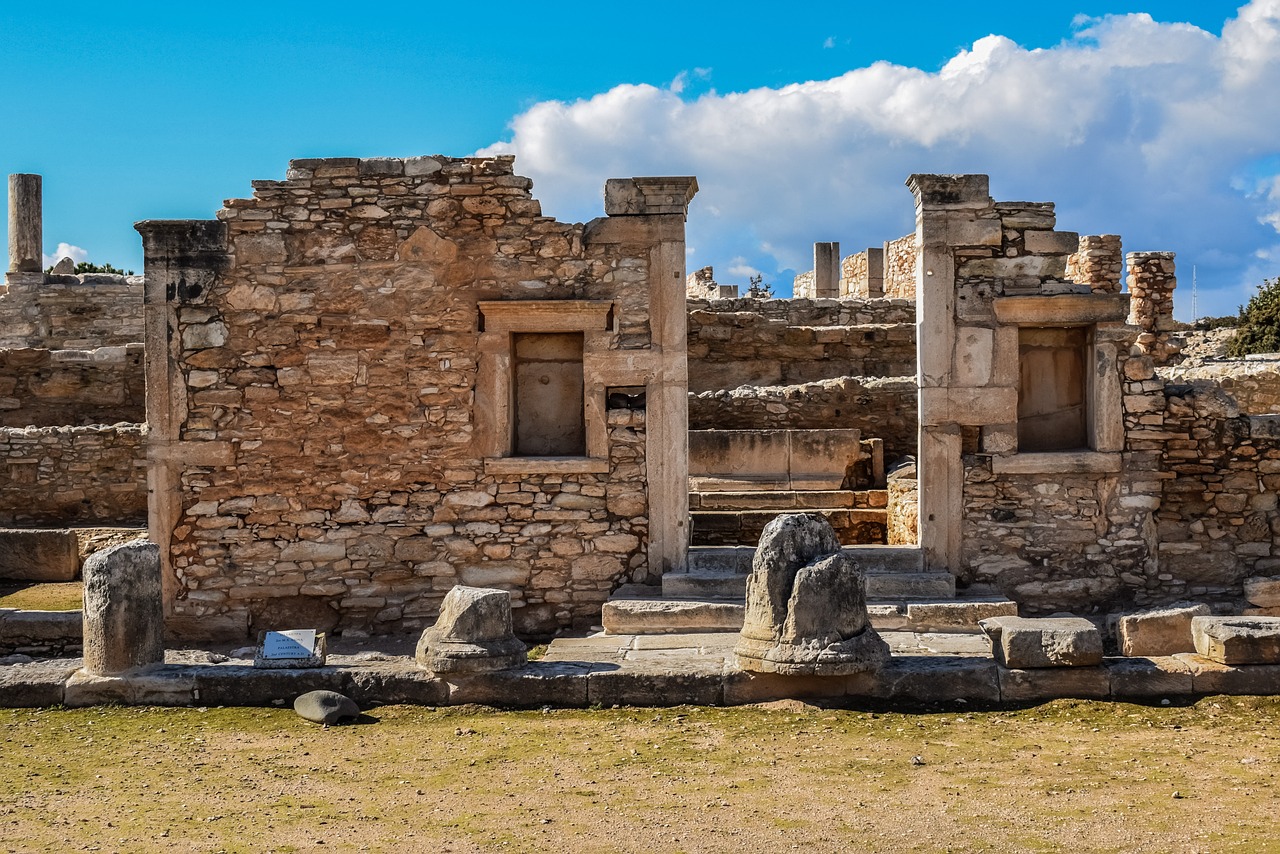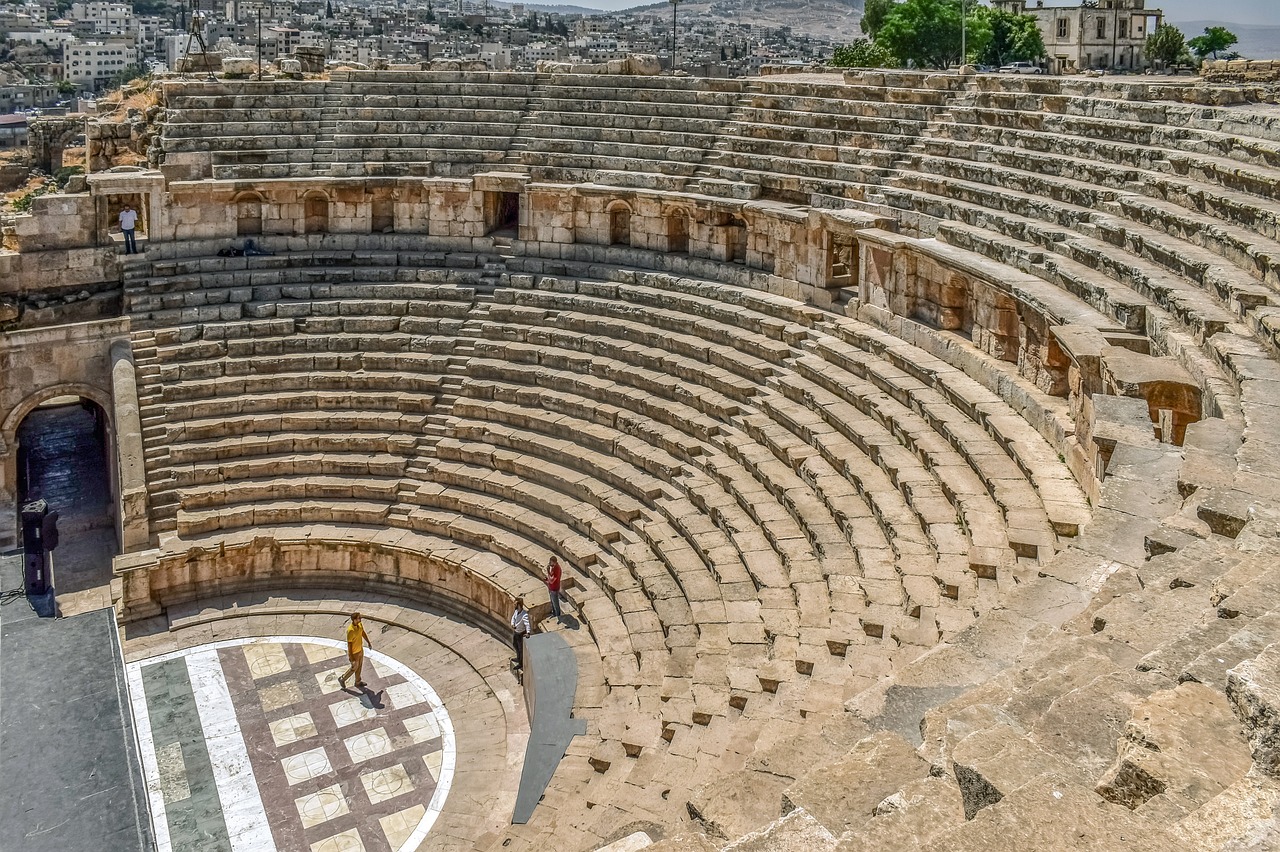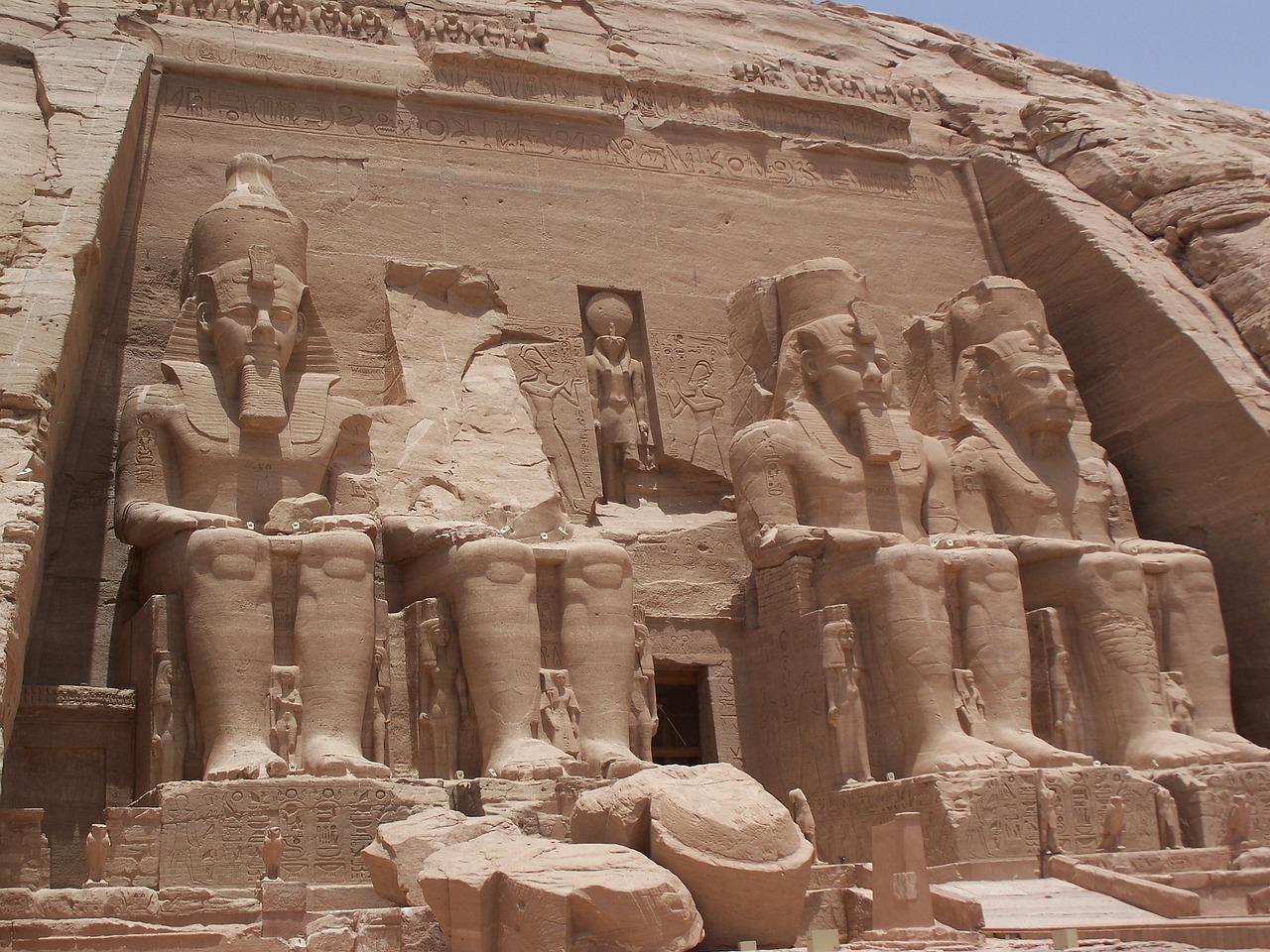The Impact of Ancient Civilizations on Modern Society
Ancient civilizations have left an indelible mark on modern society, shaping our world in ways we may not even realize. From the towering pyramids of Egypt to the intricate governance systems of Rome, the influence of these ancient cultures can be seen in every corner of our contemporary lives.
One of the most striking legacies of ancient civilizations is their architectural prowess. The grandeur of structures like the Colosseum in Rome and the Parthenon in Greece continues to inspire modern architects and urban planners, pushing the boundaries of design and engineering.
Political systems developed by ancient civilizations such as Athens' democracy and Rome's republic have laid the foundation for modern governance and political thought. The concepts of citizenship, representation, and rule of law originated in these ancient societies, shaping the way we govern ourselves today.
Delving into the cultural traditions of ancient civilizations reveals a rich tapestry of rituals, art forms, and belief systems that still resonate in contemporary culture. The Maya, the Indus Valley, and Mesopotamia have all left their mark on societal norms and traditions that persist to this day.
Technological advancements made by ancient civilizations, from the invention of writing to the development of irrigation systems, have paved the way for modern technology and scientific progress. These early innovations continue to influence our understanding of the world and drive technological advancements.
The development of language, both written and spoken, by civilizations like Sumeria, Egypt, and China has had a lasting impact on modern communication. The roots of our languages can be traced back to these ancient societies, shaping the way we express ourselves and interact with one another.
Trade and commerce were vital aspects of ancient civilizations, with trade routes like the Silk Road connecting distant lands and fostering economic growth. The commercial practices of civilizations like the Phoenicians and Aztecs have influenced global trade and commerce, shaping the modern economy.
Legal systems established by ancient civilizations, such as Hammurabi's Code and Roman law, have laid the groundwork for modern legal systems and jurisprudence. Principles of justice and law developed centuries ago continue to guide our legal frameworks and ethical standards.
Artistic expression flourished in ancient civilizations, with the Greeks, Egyptians, and Mayans producing stunning works of art that continue to inspire modern artists. The aesthetics and creative expressions of these ancient cultures have left an indelible mark on artistic movements and creative endeavors.

Architectural Influence
Exploring how the achievements, culture, and innovations of ancient civilizations continue to influence and shape contemporary society in various aspects such as architecture, governance, language, and technology.
Architecture has always been a reflection of society's values and aspirations. The grandeur of ancient architectural marvels like the pyramids of Egypt, the Colosseum in Rome, and the Parthenon in Greece continues to awe and inspire us today. These monumental structures not only showcase the engineering prowess of their time but also serve as a blueprint for modern architects and urban planners.
Imagine standing in front of the majestic pyramids, feeling the weight of history pressing down on you. The precision of their construction, the mathematical genius required to align them with the stars, all speak to a level of sophistication that still captivates us. Modern skyscrapers, with their sleek lines and innovative designs, owe a debt to these ancient wonders.
Furthermore, the concept of sacred spaces and monumental architecture, deeply rooted in ancient civilizations, has influenced the design of religious buildings, government structures, and public spaces in contemporary society. The symmetry, harmony, and symbolism found in ancient temples and palaces can be seen echoed in modern structures, creating a sense of continuity between the past and the present.

Political Legacy
Exploring how the achievements, culture, and innovations of ancient civilizations continue to influence and shape contemporary society in various aspects such as architecture, governance, language, and technology.
The political systems and philosophies of ancient civilizations have left a profound impact on modern governance and political thought. For instance, Athens' democracy, where citizens had a say in decision-making, laid the foundation for democratic principles followed in many modern societies. Similarly, Rome's republic, with its system of checks and balances, influenced the development of representative democracies. China's imperial bureaucracy, known for its centralized control and administrative efficiency, has also shaped modern governance practices.
Ancient civilizations not only established various forms of government but also introduced key political concepts that are still relevant today. The ideas of justice, equality, and the rule of law, which were central to the political philosophies of these civilizations, continue to guide contemporary political systems. The emphasis on civic duty, public service, and accountability, espoused by ancient political thinkers, remains integral to the functioning of modern governments.
Moreover, the political legacy of ancient civilizations extends beyond governance structures to encompass diplomatic relations, international law, and conflict resolution. The diplomatic practices and treaties established by civilizations like the Greeks, Persians, and Chinese laid the groundwork for modern diplomacy and international relations. The principles of just war, diplomacy, and peace treaties, developed by ancient political theorists, continue to influence global politics and negotiations.
By studying the political legacy of ancient civilizations, we gain valuable insights into the evolution of political systems, the role of citizens in governance, and the enduring principles of justice and ethics. The enduring influence of these ancient political systems serves as a reminder of the enduring legacy of the past on the present political landscape.

Cultural Traditions
When we delve into the rich tapestry of ancient civilizations, we uncover a treasure trove of cultural traditions that have transcended time and continue to shape our modern society. From the intricate rituals of the Maya civilization to the sophisticated art forms of the Indus Valley, these ancient traditions serve as a bridge connecting us to our past and influencing our present.
One remarkable aspect of ancient cultural traditions is their ability to endure through generations, carrying with them stories, beliefs, and practices that resonate with contemporary society. The artistry of Mesopotamian pottery, the mysticism of Egyptian hieroglyphics, and the spiritual ceremonies of the Aztecs all leave a lasting imprint on our cultural landscape, inspiring creativity and fostering a sense of heritage.
Moreover, the diverse belief systems and societal norms established by ancient civilizations offer valuable insights into the human experience, prompting us to reflect on our values and traditions. The reverence for nature exhibited by the Inca civilization, the philosophical musings of Confucianism, and the artistic expressions of the Greeks all contribute to the mosaic of cultural diversity that defines our world today.
Through the preservation of ancient cultural traditions, we not only honor the legacy of our ancestors but also gain a deeper understanding of ourselves and our place in the continuum of history. By embracing the wisdom of the past and celebrating the richness of our collective heritage, we pave the way for a more interconnected and harmonious society, where the echoes of ancient civilizations resonate in our everyday lives.

Technological Advancements
Exploring how the achievements, culture, and innovations of ancient civilizations continue to influence and shape contemporary society in various aspects such as architecture, governance, language, and technology.
When delving into the technological advancements of ancient civilizations, we uncover a treasure trove of innovation that has paved the way for modern society. The ingenuity of civilizations like the Mesopotamians, Egyptians, and Greeks laid the foundation for technological progress that continues to shape our world today.
Ancient Mesopotamians are credited with the invention of writing, a monumental achievement that revolutionized communication and record-keeping. The cuneiform script on clay tablets not only preserved historical records but also served as the precursor to modern writing systems, influencing the development of languages across the globe.
Furthermore, the Egyptians' mastery of mathematics was unparalleled in the ancient world. The construction of the pyramids stands as a testament to their advanced mathematical knowledge, precision engineering, and architectural prowess. The mathematical principles employed in building these monumental structures have influenced modern engineering and construction techniques.
Another significant technological advancement from antiquity is the sophisticated irrigation systems developed by civilizations like the Indus Valley civilization. Their mastery of hydraulic engineering enabled efficient water management for agriculture, sustaining large populations and fostering urban development. The principles of irrigation systems devised by ancient civilizations continue to inform modern agricultural practices and water resource management.
Metallurgy was another groundbreaking innovation of ancient civilizations, with the discovery and refinement of metalworking techniques revolutionizing tool-making, weaponry, and artistic craftsmanship. The advancements in metallurgy by civilizations such as the Greeks and Romans laid the groundwork for industrial processes and manufacturing methods that are still utilized today.
In conclusion, the technological advancements of ancient civilizations have left an indelible mark on modern society, shaping the way we communicate, build, calculate, and create. By studying and appreciating the technological feats of our ancient predecessors, we gain a deeper understanding of the roots of our technological landscape and the enduring legacy of innovation that continues to propel us forward.

Language Development
The development of language is a fascinating aspect of ancient civilizations that continues to shape how we communicate today. Languages have evolved over centuries, influenced by the early written and spoken forms of ancient societies such as Sumeria, Egypt, and China. These civilizations laid the foundation for linguistic expression, paving the way for the diverse languages spoken around the world.
Ancient Sumerians, known for their cuneiform writing system, were among the first to record language on clay tablets, establishing a written form of communication that influenced future writing systems. Similarly, the hieroglyphs of ancient Egypt and the intricate characters of Chinese script demonstrated the power of written language to convey complex ideas and narratives.
Moreover, the spoken languages of these civilizations provided the basis for modern linguistic development. The phonetic sounds and grammatical structures of ancient languages have left a lasting impact on contemporary languages, with many words and linguistic rules tracing back to their ancient origins.
Through trade and cultural exchanges, languages from ancient civilizations spread across regions, blending with local dialects and evolving into new forms. This linguistic diversity reflects the rich tapestry of human history and the interconnectedness of different cultures through language.
Furthermore, the study of ancient languages continues to unlock the mysteries of the past, allowing us to decipher historical texts, inscriptions, and manuscripts. Scholars and linguists delve into the nuances of ancient languages, piecing together the stories and knowledge of bygone eras.
In essence, language development from ancient civilizations serves as a testament to the enduring legacy of human communication. The roots of language run deep, connecting us to our ancestors and shaping the way we express ideas, emotions, and experiences in the modern world.

Trade and Commerce
The ancient civilizations played a pivotal role in shaping the foundations of modern trade and commerce. From the Phoenicians' maritime trade networks to the Silk Road's vast economic connections, these ancient trading routes and practices laid the groundwork for today's global economy. The Phoenicians, known for their seafaring skills and establishment of trading posts across the Mediterranean, facilitated the exchange of goods, ideas, and cultures between distant lands. Similarly, the Silk Road, spanning from China to the Mediterranean, connected the East and West, fostering trade in silk, spices, and other valuable commodities.
Moreover, the Aztec markets in Mesoamerica showcased a sophisticated economic system based on barter and the use of cocoa beans as currency. These ancient marketplaces not only served as hubs for commercial activities but also as centers for social interaction and cultural exchange. The intricate networks of trade and commerce established by these civilizations not only stimulated economic growth but also promoted cross-cultural understanding and cooperation.
Furthermore, the legacy of ancient trade routes continues to influence modern trade practices and globalization. The principles of supply and demand, currency exchange, and market competition can be traced back to the commercial activities of ancient civilizations. The lessons learned from their trade and commerce systems have informed contemporary economic policies and strategies, emphasizing the importance of international trade relations and sustainable business practices.

Legal Systems
Exploring how the achievements, culture, and innovations of ancient civilizations continue to influence and shape contemporary society in various aspects such as architecture, governance, language, and technology.
When delving into the legal systems of ancient civilizations, we uncover a rich tapestry of laws, codes, and ethical principles that have left a lasting imprint on modern legal frameworks. From Hammurabi's Code in ancient Mesopotamia to the intricate legal system of the Roman Empire and the moral teachings of Confucius in China, these ancient legal systems have laid the foundation for our current understanding of justice and law.
One of the most famous legal codes, Hammurabi's Code, established in Babylon around 1754 BC, is renowned for its "eye for an eye" principle, emphasizing retribution and justice. This code influenced later legal systems by introducing the concept of written laws and standardized punishments, setting a precedent for legal accountability and consistency.
Roman law, with its emphasis on equality before the law and the rights of citizens, played a significant role in shaping modern legal systems in Europe and beyond. The principles of justice, due process, and the rule of law established by the Romans continue to be fundamental pillars of legal practice in many countries today.
Confucian ethics, originating in ancient China, focused on moral values, social harmony, and the importance of relationships within society. While not a legal code in the traditional sense, Confucian teachings influenced the development of ethical principles and social norms that are reflected in modern legal systems, particularly in East Asia.
By studying the legal systems of ancient civilizations, we gain a deeper understanding of the evolution of law, justice, and governance throughout history. These early legal frameworks have provided the groundwork for the complex legal systems that govern our societies today, highlighting the enduring impact of ancient civilizations on modern legal thought and practice.

Artistic Inspiration
Art has always been a mirror reflecting the beauty, emotions, and beliefs of society. The artistic achievements of ancient civilizations such as the Greeks, Egyptians, and Mayans serve as a timeless well of inspiration for modern artists around the world. The intricate sculptures of the Greeks, the majestic pyramids of the Egyptians, and the vibrant murals of the Mayans continue to captivate and influence contemporary artistic expressions.
Just like a masterful painting, ancient artistry speaks volumes about the values and aspirations of the people who created it. The attention to detail in Greek sculptures, the symbolic motifs in Egyptian hieroglyphics, and the narrative storytelling in Mayan murals all contribute to the rich tapestry of artistic inspiration that transcends time and geography.
Moreover, the techniques and styles developed by ancient artists have laid the foundation for many modern artistic movements. From the realism of Greek sculptures to the abstraction of Egyptian art to the intricate patterns of Mayan textiles, each civilization's unique artistic language has left an indelible mark on the evolution of art through the ages.
Contemporary artists often draw inspiration from the masterpieces of ancient civilizations, incorporating elements of form, symbolism, and storytelling into their own creations. Just as a sculptor chisels away at marble to reveal a hidden beauty, modern artists continue to unearth the timeless treasures of the past to infuse their work with a sense of history and cultural resonance.
Artistic inspiration is a bridge that connects the past with the present, allowing us to glimpse into the souls of ancient civilizations and carry forward their legacy of creativity and imagination. As we marvel at the artistic achievements of the Greeks, Egyptians, and Mayans, we are reminded that art is not just a product of its time but a timeless expression of the human spirit.
Frequently Asked Questions
- 1. How did ancient civilizations influence modern architecture?
Ancient civilizations like Egypt, Rome, and Greece set the foundation for modern architectural styles through iconic structures such as the pyramids, the Colosseum, and the Parthenon. These architectural marvels continue to inspire contemporary architects and urban planners in design and construction.
- 2. What was the significance of ancient legal systems?
Ancient civilizations like Mesopotamia, Rome, and China established early legal codes and principles that laid the groundwork for modern legal systems. Hammurabi's Code, Roman law, and Confucian ethics influenced the development of laws, justice systems, and ethical standards that are still relevant today.
- 3. How did ancient trade routes impact global commerce?
Ancient trade routes such as those established by the Phoenicians and the Silk Road traders played a crucial role in connecting civilizations and facilitating the exchange of goods and ideas. The commercial practices of ancient civilizations continue to influence global trade and commerce in the modern world.



















